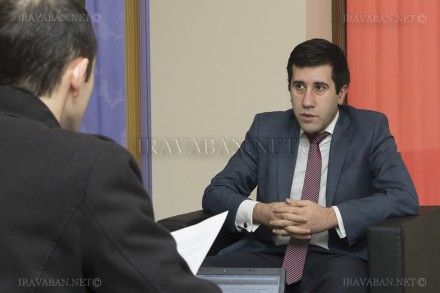The new draft Criminal Proceeding Code has been put into circulation in the National Assembly from since 2012. One of the co-authors of the draft is the Rector of the Academy of Justice Mr. Ruben Melikyan who states that the hastiness in adopting the Code is unnecessary. In which case the Criminal Proceeding System will appear in a shock, what are the drawbacks and why the lawyers community does not get rid of the patched Code, as our interlocutor calls it? Ruben Melikyan speaks about the lacking points of the current Code and the risks of adopting the new one.
We hear from many platforms that the current Code on Criminal Proceeding is not vital anymore, do You share this opinion and what is the main problem of the functioning Code according to You?
The existing Criminal Proceeding Code was adopted in 1998 and has gone through dozens of amendments, so the system which was established in 1998 does not function anymore, this refers to many institutes of criminal proceeding. New systems and new perspectives have been inserted. The existing Criminal Proceeding Code can be considered of patched nature which has lost its strong systemic nature. The problems arise from there, and unlike other spheres, that of criminal proceeding is very dynamic and develops quickly. Especially since the beginning of 2000s when we joined the European Convention, we saw that it offers quite extensive jurisprudence to us especially in this sphere. It is not a coincidence that more than half of the ECHR jurisprudence refers to the Criminal sphere. That is why we have a very old Code in terms of freshness.
To make the issue more descriptive, please mention several issues of content.
The model of correlation of public and private interests which is on the basis of the current Code already does not work. We don`t have efficient mechanisms of the protection of public interests. Especially the end of the 20th century was characterized with the revelation of new measures of proving and insertion into the criminal proceeding sphere, we don`t have this. The existing Code has considerable simplicity with the law on “Operative-investigative activity”, in terms of whether the audio recordings of phone conversations implemented by the permission of the court are evidence or not, and why they should not be considered as evidence and proof. There is the problem of the protection of public interests. In terms of both public and private interests the Code does not offer systemic solutions, the solutions are old and of patched nature.
The new draft Code on Criminal Proceeding which was put into the circulation of the National Assembly in 2012 has been considered revolutionary by some advocates, simultaneously stating that it includes several bombs which are explosive for he justice. The accent is also put on the depositing of the testimony of the accused. There are opinions that this institute is the obstacle for the Code to enter into the 4-day sittings of the National Assembly.
I can`t confirm your information that the main problem is the institute of deposition, though we had an efficient discussion in the National Assembly. The importance of the Institute of deposition for the new Code on Criminal proceeding is very limited, as it can also be applied as an alternative, so that the deposition of the testimonies of the accused is used only when he does not have a defender. Simultaneously, the new Code offers additional mechanisms to increase the number of accused who have defenders. The second most common delusion is that the deposited testimony will have a higher varacity and real power. In terms of legal power it is clear that it does not have higher value than any other testimony. As to in which condition the discussions are, I can say that many problematic issues have been raised.
You can find the full interview in Armenian.
Interview by Gevorg Tosunyan
Photo by Zakar Iskandaryan































